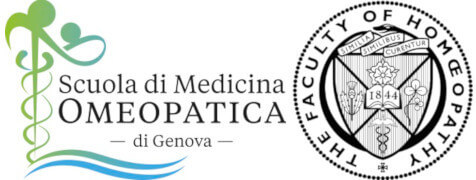Abhijit Dutta et al. Explore (NY). 2022.
Show details
Display options
Explore (NY)
. 2022 Aug 29;S1550-8307(22)00160-4.
doi: 10.1016/j.explore.2022.08.017. Online ahead of print.
Authors
Abhijit Dutta 1 , Subhas Singh 2 , Subhranil Saha 3 , Prasanta Rath 4 , Nisha Sehrawat 5 , Navin Kumar Singh 6
Affiliations
- 1 Medical Officer (Homoeopathy), Maynaguri Rural Hospital, Jalpaiguri, West Bengal, under Department of Health & Family Welfare, Govt. of West Bengal, India; Former Postgraduate Trainee, Department of Organon of Medicine & Homoeopathic Philosophy, National Institute of Homoeopathy, Kolkata, under the Ministry of AYUSH, Govt. of India, India. Electronic address: drabhijitdutta1@gmail.com.
- 2 Department of Organon of Medicine & Homoeopathic Philosophy, National Institute of Homoeopathy, Kolkata, under the Ministry of AYUSH, Govt. of India, India.
- 3 Department of Repertory, D. N. De Homoeopathic Medical College and Hospital, 12, Gobinda Khatick Road, Kolkata, West Bengal 700046, India.
- 4 Department of Community Medicine, National Institute of Homoeopathy, Kolkata, under the Ministry of AYUSH, Govt. of India, India.
- 5 Central Council for Research in Homoeopathy, under the Ministry of AYUSH, Govt. of India, New Delhi, India.
- 6 Department of Repertory, The Calcutta Homoeopathic Medical College and Hospital, Govt. of West Bengal, 265, 266, Acharya Prafulla Chandra Road, Kolkata, West Bengal 700009, India.
- PMID: 36115790
- DOI: 10.1016/j.explore.2022.08.017
Full text linksCite
Display options
Abstract
Background: Hemiparesis is a serious motor impairment following stroke and affecting around 65% of stroke patients. This trial attempts to study the efficacy of individualized homeopathic medicines (IHMs) in comparison with identical-looking placebos in treatment of post-stroke hemiparesis (PSH) in the mutual context of standard physiotherapy (SP).
Methods: A 3-months, open-label, randomized, placebo-controlled trial (n = 60) was conducted at the Organon of Medicine outpatient departments of National Institute of Homoeopathy, West Bengal, India. Patients were randomized to receive IHMs plus SP (n = 30) or identical-looking placebos plus SP (n = 30). Primary outcome measure was Medical Research Council (MRC) muscle strength grading scale; secondary outcomes were Stroke Impact Scale (SIS) version 2.0, Modified Ashworth Scale (MAS), and stroke recovery 0-100 visual analogue scale (VAS) scores; all measured at baseline and 3 months after intervention. Group differences and effect sizes (Cohen’s d) were calculated on intention-to-treat sample.
Results: Although overall improvements were higher in the IHMs group than placebos with small to medium effect sizes, the group differences were statistically non-significant (all P>0.05, unpaired t-tests). Improvement in SIS physical problems was significantly higher in IHMs than placebos (mean difference 2.0, 95% confidence interval 0.3 to 3.8, P = 0.025, unpaired t-test). Causticum, Lachesis mutus, and Nux vomica were the most frequently prescribed medicines. No harms, unintended effects, homeopathic aggravations or any serious adverse events were reported from either group.
Conclusion: There was a small, but non-significant direction of effect favoring homeopathy against placebos in treatment of post-stroke hemiparesis.
Trial registration: CTRI/2018/10/016196; UTN: U1111-1221-7664.
Keywords: Homeopathy; Placebo; Post-stroke hemiparesis; Randomized controlled trial.
Copyright © 2022 Elsevier Inc. All rights reserved.
Conflict of interest statement
Declaration of Competing Interest None declared.
